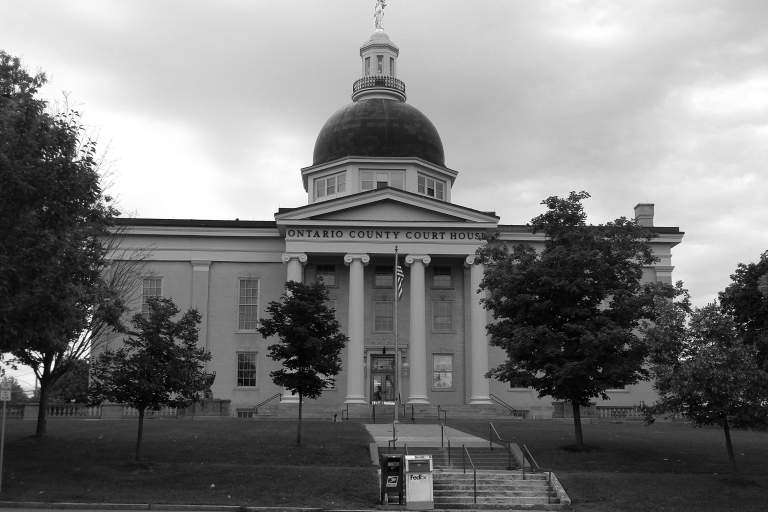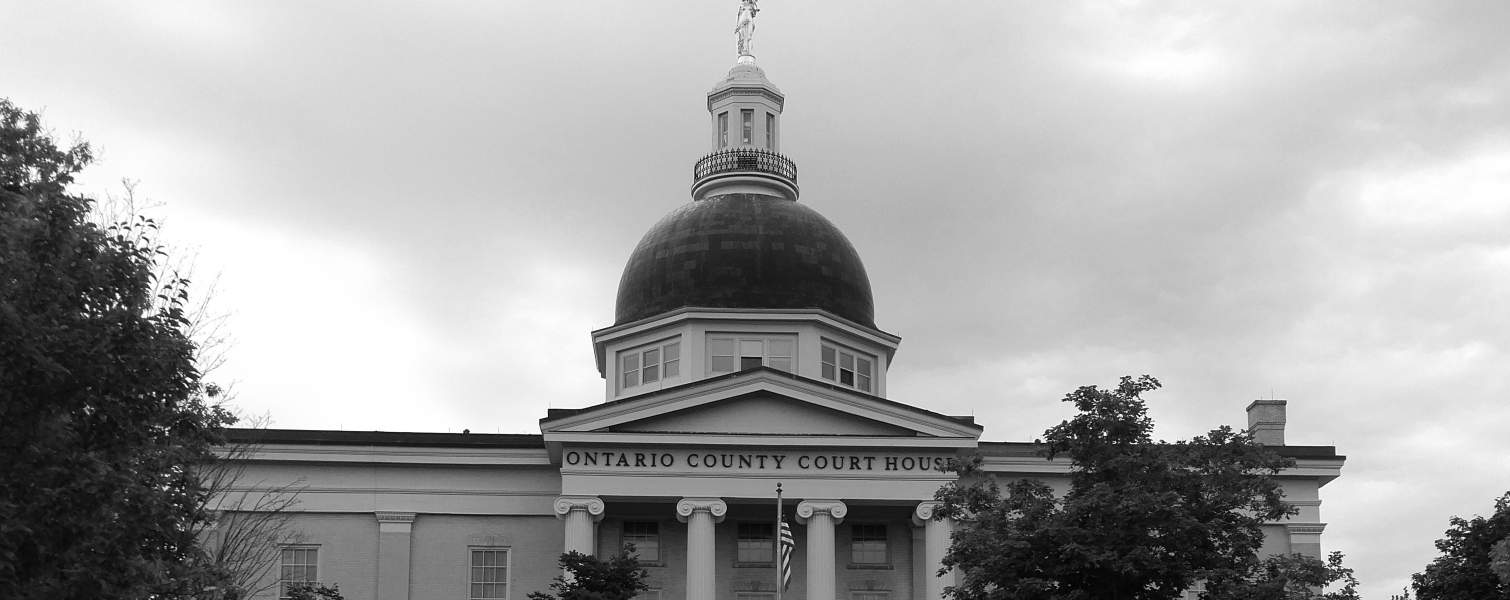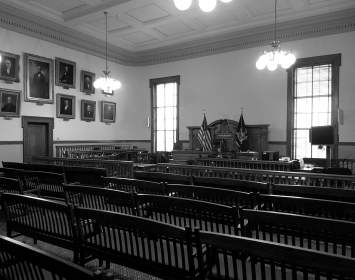Canandaigua (population 9,998 per 2020 Census) is the seat of Ontario County, New York. Its name is of Tuscarora Indian derivation. It was founded on the site of the Seneca village whose name is now rendered as Ganandogan after that village was destroyed by the Sullivan Expedition on September 10, 1779. In 1794, the young settlement hosted the signing of the Treaty of Canandaigua, establishing relations between the United States and the Six Nations of the Iroquois. Though often violated by the U.S., the treaty remains in effect.
Settlers from New England and eastern New York State populated the area; by the mid-1800s, the town was an important railroad center and a busy steamboat port. Industries included brick-making, milling, and brewing.
In 1873, Canandaigua was the site of the trial of pioneer suffrage campaigner Susan B. Anthony, who had voted illegally in the U.S. presidential election of 1872. She was found guilty in a legally controversial verdict and fined $100, which she never paid.
Today the city of Canandaigua is the home of Constellation Brands, a Fortune 500 wine, beer, and spirits marketer, and the Sonnenberg Gardens and Mansion State Historic Park. Summer activities focus on tourism and water sports on Canandaigua Lake, the fourth largest of New York’s eleven Finger Lakes. Most of the city’s historic core is encompassed within the Canandaigua Historic District, listed on the National Register of Historic Places in 1984. The District includes 338 contributing structures.


